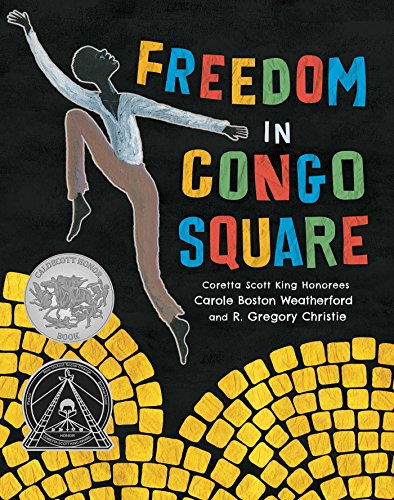Why a Booktrail?
1900s: A poetic, nonfiction story about a little-known piece of African American history

1900s: A poetic, nonfiction story about a little-known piece of African American history
A rhyming book about slaves in Louisiana. It tells the story about how they toil hard during the week, counting down the days to Sunday, when they can be free for a time to celebrate at Congo Square.
Mondays, there were hogs to slop,
mules to train, and logs to chop.
Slavery was no ways fair.
Six more days to Congo Square.
This is the amazing true story of Congo Square. Slaves relentlessly toiled in an unjust system in 19th century Louisiana, and their only taste of freedom was on a Sunday when they were allowed to go to Congo Square and set up a market. They all gathered here and set up stalls, ate food, chatted, danced and played music. For a brief time, they were not slaves, but people with their own desires, wishes and a chance to be themselves.
It’s what they were expected to do during the rest of the week that this story also looks at – the hard, backbreaking ork, having to chop logs, bake bread, pluck the hens; in fact anything that was demanded of them.
Sundays were special days of freedom and Congo Square an iconic place in the city’s history.
The book has a forward from Freddi Williams Evans (freddievans.com), a historian and Congo Square expert, as well as a glossary of terms with pronunciations and definitions.
Destination : New Orleans Author/Guide: Carole Boston Weatherford Departure Time: Early 1900s
Back to Results